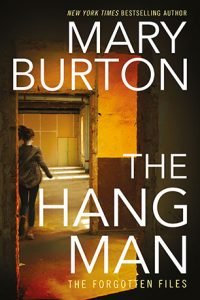 Detective Novak discovers the unexpected in Church Hill …
Detective Novak discovers the unexpected in Church Hill …
Flashing lights from the patrol cars and fire engines made it easy for City of Richmond detective Tobias Novak to find the Church Hill murder scene. He parallel parked at the end of the block, climbed out of his SUV into the bitter cold, and burrowed deeper into his overcoat as he made his way up the brick sidewalk past century-old row houses, some looking every bit their age.
It was his evening off and he was not happy about leaving behind a warm bed and the woman in it. Blame it on the lunar cycle or Halloween week, but the dispatcher had every on-duty detective already committed. He was needed.
A uniformed officer stood by the strip of yellow crime-scene tape tied to a wrought-iron fence encircling the small front yard. A “Rice Renovation” sign was planted in a bed of overgrown weeds. He’d seen the company’s signs around the old Church Hill and Fan District neighborhoods and knew similar companies were  buying and remodeling these vacant old homes for empty nesters hungry to move back into the city.
buying and remodeling these vacant old homes for empty nesters hungry to move back into the city.
The uniformed police officer was lean, muscular and in his early twenties. “Detective Novak,” the officer said as he raised the tape.
“What do we have?” Novak asked.
The officer shifted his feet and rubbed his hands together to chase away the night chill. “Neighbor across the street spotted a fire on the first floor and called it in. Crews put it out in fifteen minutes. It appears electrical, but they’re calling in the arson investigator. The house’s new owner was alerted. You received the call when they found the body in the basement.”
Novak blew warm air on his cold fingers. “Is the death related to the fire?”
“Doesn’t look like it.”
“How can you tell?”
“You’ll have to see it for yourself, sir.”
Novak stared up at the peeling gray-white paint of the early twentieth-century row house. The wide front porch had rotted in several places, a section of the portico roof had collapsed, and two of the four floor-to-ceiling windows were broken. Six faded “No Trespassing” signs were nailed across the front of the house.
“Who’s inside now?” Novak asked.
“Another uniformed officer and the forensic technician has been on scene for nearly an hour.”
Across the street, a couple of dog walkers huddled close as they stared at the scene. At least there were no television crews yet, so he might have more time before this went public.
Novak climbed the front steps, crossed the rotted porch, and entered the foyer. He’d been in countless city houses like this before. Called shotgun houses, the homes were built with a staircase on the left, a long hallway leading to the back and two rooms on the right.
The front room was dark, filled with trash and several stained pieces of upholstered furniture. The pungent scent of smoke grew stronger as he moved closer to the adjoining room, which was blackened from smoke and flames. Jagged burn marks originated at an outlet and crawled up the wall. Water dripped from already peeling wallpaper.
Under the scent of charred wood lurked hints of mildew, dust and urine, but no sighs of human decay. The cold snap would have slowed decomposition, but there was still generally some smell of death.
Temporary lighting set up in the kitchen illuminated the hallway, which was filled with more rubbish and fallen ceiling plaster. In the kitchen, a set of dark cabinets dating back a half century hung over a filthy porcelain sink filled with trash. The black-and-white linoleum on the floor peeled and buckled in several spots.
Noise echoed up from the basement and pulled him toward the open door that led to a wooden set of rickety stairs. He climbed down into the basement.
The ceiling and ductwork were low and only inches higher than his ix-foot-three frame. In the far right corner, he found the uniformed officer and a forensic technician who was aiming her camera into a small room.
Novak moved toward the tech. In her mid-twenties, Natasha Warner was short and slender with dark hair pulled into a ponytail. He’d worked scenes with her before and knew she was sharp and ambitious and cut no corners. Novak fished latex gloves from his pocket and worked his large hands inside them.
“Officer Warner,” Novak said.
Natasha turned and lowered her camera from her angular face. “Detective Novak.”
Novak nodded before stepping past he rinto the small room. The air was dry, but there was no scent of rotting flesh. “Natasha, what do you have?”
Her gaze sparked with keen curiosity. “A woman who was locked in this room, which was probably a root cellar at one time. By the looks of her clothes, I’d say she’s been here around twenty-five years.”
“Twenty-five years?” Novak pulled dark-rimmed glasses from his pocket and slid them on as he accepted a flashlight from Natasha. “Were you born twenty-five years ago?”
Natasha glanced in her viewfinder. “Barely. You?”
“Very funny,” he said. The forensic technician looked like a kid. Natasha Warner couldn’t have been much older than his daughter. Frequent workouts kept Novak’s body trim but the glasses and the flecks of gray at his temples gave away his approaching forty-second birthday.
Lying on the floor were skeletal remains of a body appearing to be lying on its back, arm and leg bones outstretched. The mandible, or lower jaw, was slightly agape. The clothing was intact and amounted to what remained of a faded pair of jeans with yellow and white flowers embroidered on the pockets and a pale-blue blouse with a wide collar and cuffs. What had been the victim’s long red hair remained partially intact and still knotted into a braid that draped over her shoulder.
“You said female,” he said.
“Clothing is one clue, but the deciding factor is her brow ridge. It’s thin, indicating female.”
“She’s only bones.”
“In Virginia’s hot and humid climate, this kind of decomposition is expected. And she’s intact because she was in a sealed room. Animals would have scattered her bones if she had been outside.”
Novak studied the position of the arms and legs. “She looks posed.”
“Or she did it herself,” Natasha said. “I worked a suicide once that was like this. The woman took a couple handfuls of pills and then laid herself out on her bed.”
“Presenting herself to the Almighty?” Novak asked.
Natasha shrugged. “Her husband said they’d argued that morning an she promised to ‘show him.’ he said the suicide was an f-you message to him.”
The summary struck a sharp nerve. His late wife had killed herself. But she’d not chosen pills. That was too passive for Stephanie. No, she’d driven her car into a lake. The kicker had been that she’d strapped Bella, their one-year-old, into her car seat. Fortunately, someone had seen Stephanie’s car plunge into the water. Bella had been pulled out as Stephanie screamed and fought to be left alone. The lake had quickly sucked the car under, and by the time Stephanie had been pulled from the water, she was dead.
Two days later, a letter from Stephanie posted the day she died had arrived at their home. In it, she blamed him for her dark moods and miserable life. At the time, he’d been too damn angry to care why. She’d tried to kill Bella and that was unforgivable.
His father had moved in with them, helping with child care while Novak worked. From then on, his priorities had been simple. Raise Bella and catch bad guys. She’d been an easy kid. Smart. Funny. Strong. His father had passed two years ago, and when Bella had left for the University of Virginia last year, he’d thought he’d finally get a chance to enjoy a bachelor’s life. Instead, the house remained too empty. Too quiet. Until a few weeks ago, he’d pacified the restless silence with work.
Novak thought again about the woman he’d left in her warm bed. For the first time in a long while, he resented the job.
Copyright © Mary Burton 2017

